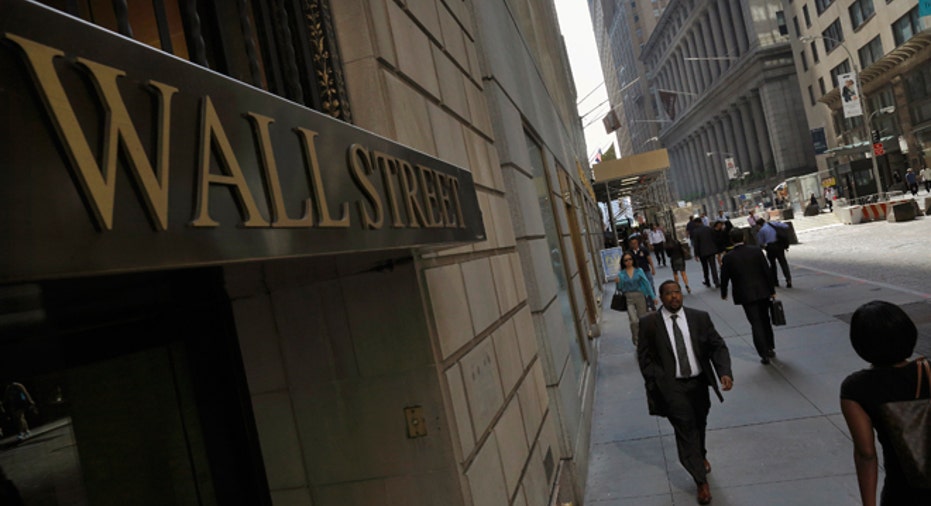Wall Street’s Rallying, So Why are Boomers so Scared?

Protecting your savings and minimizing losses is paramount to long-term survival in retirement. But that’s easier said than done.
For baby boomers headed into the home stretch ahead of their retirement, preserving their nest egg is a constant goal—and questions swirl on the best way to do this. Is now the time to flock to safe-haven investments like Treasuries or FDIC insured savings accounts? Or are we strong enough to stomach the volatility on Wall Street?
According to a recently-released survey from Allianz, the majority of Americans would like a financial product with no potential loss or at least some level of protection from loss. The report, which surveyed people with more than$200,000 in assets, showed protecting retirement assets is a top concern and 76% said they would prefer a product that offers a balance of potential growth (up to 10%) with a level of protection that shelters them from up to 10% of losses.
Robert DeChellis, president of Allianz Life Financial Services, LLC answered the following questions for market weary investors looking to protect their nest eggs from loss:
Boomer: What type of protection from losses would boomers like as they accumulate assets for retirement?
DeChellis: Not every baby boomer is in the same financial situation. Some have been diligent savers and invested wisely. Others weathered the 2008 financial crisis but still experienced heavy losses to their portfolio. Others took a significant hit and are now focused on rebuilding their retirement assets.
As such, different people have their own expectations about asset accumulation and specific needs for protection. However, according to the 2013 Allianz Life Investor Market Perceptions Study, nearly all boomers (94%) surveyed had some interest in protection while building their retirement portfolio, with the amount of protection dependent on the amount of risk they are willing to take.
Boomer: Are boomer investors over the trauma of the financial crisis of 2008, and if not, should they be?
DeChellis: It seems that the 2008 financial crisis had a profound effect on a majority of baby boomers to the extent that even if they didn't suffer significant losses within their personal retirement portfolio, they witnessed the trauma caused by the crisis and still fear the effects that market volatility can have on their retirement savings.
Boomers today simply aren't willing to risk everything to achieve greater return on their investments, so they're hesitant when investing their money without some level of protection. This is a dilemma for many boomers since they really can't afford to stay out of the market completely - they need to have sizeable retirement assets in order to address both longevity and inflation.
Boomer: Do boomers believe that market volatility will continue and cause major market risk?
DeChellis: Despite a strong year for equity markets, both the S&P 500 index and Dow Jones Industrial Index hit all-time highs earlier this year, boomers remain very concerned about market volatility. Our study exposed this hesitancy as more than three quarters (80%) of boomer respondents said they believe the market will continue to be volatile, and more than a third of them (38%) noted it was preventing them from investing idle cash. That's a big reason why, according to a recent report, there is more than $8 trillion sitting in cash - boomers simply don't feel very confident about investing right now due to constant market volatility.
Boomer: What is meant by a balanced approach for tapping idle cash?
DeChellis: There are many ways to invest depending on your individual goals and when you plan to utilize your investments. When specifically investing for retirement, many people prefer a strategy that incorporates products offering growth potential while also protecting their initial investment.
In fact, the majority of boomers we surveyed (76%) said they preferred investing in a product that provides a balance of potential growth and some level of protection over one that provided modest growth with no potential for loss or one with unlimited potential growth but also unlimited potential loss. The insurance industry has heard the demand for products that offer this balance and has innovated to provide new options that can help meet this consumer need.
Boomer: Are there any strong Preference Guarantees for boomers?
DeChellis: Since the 2008 crisis, we've found that boomers remain more attracted to financial products with guarantees compared to products that have more upside potential but offer no protection from losses. Our Reclaiming the Future study from 2011 found that the majority of people (76%) ages 44-75 preferred a product that provided a 4% return and was guaranteed not to lose value over one with an 8% return but with the possibility of losing value due to market downturns. We asked the same question in this year’s Investor Market Perceptions Study and got nearly the same response, which was somewhat surprising since the respondents were required to have more than $200,000 in investable assets. Seventy percent of these respondents were more attracted to the conservative product, demonstrating that even wealthy people see the value of guarantees in today's volatile climate.



















